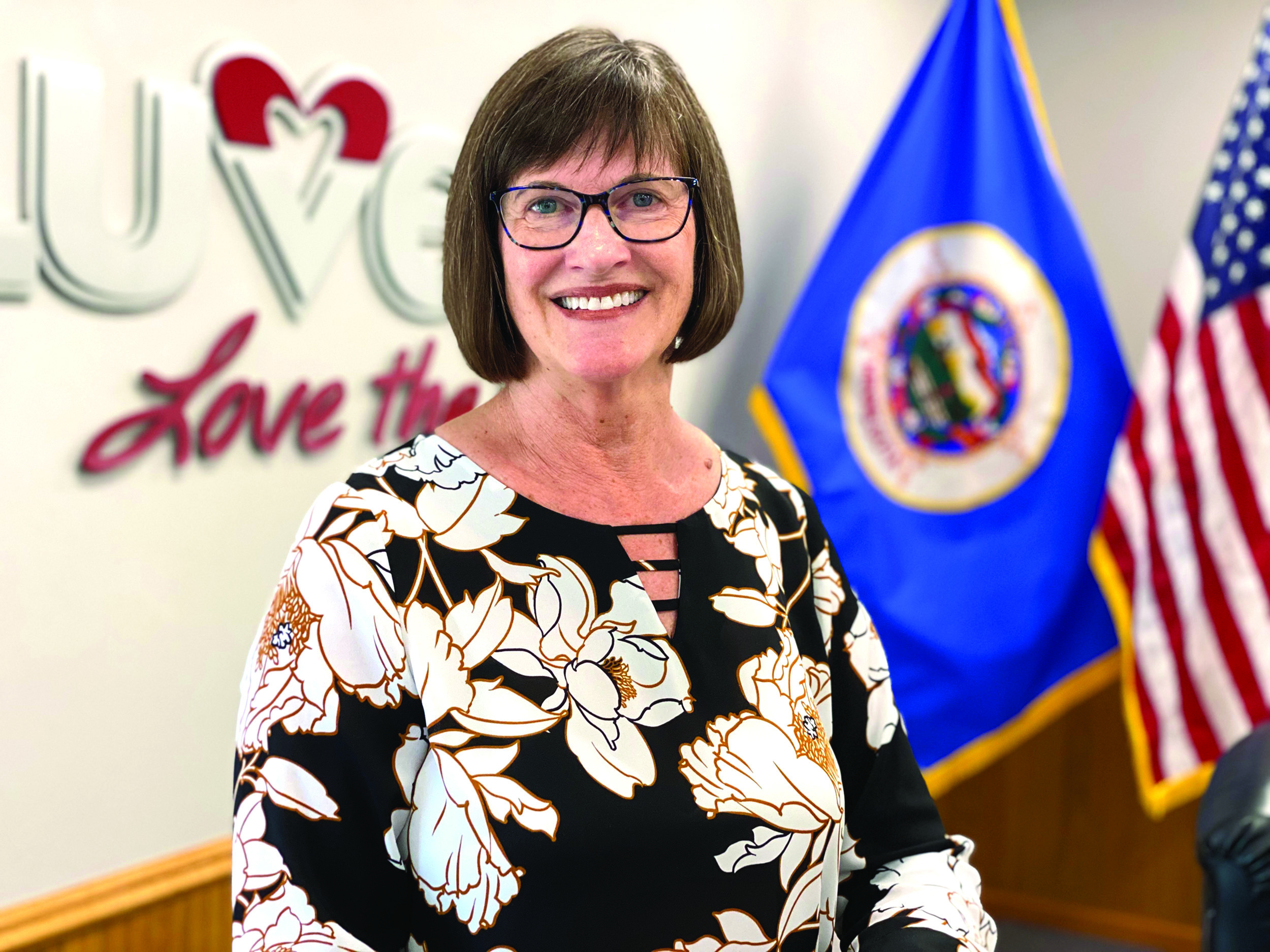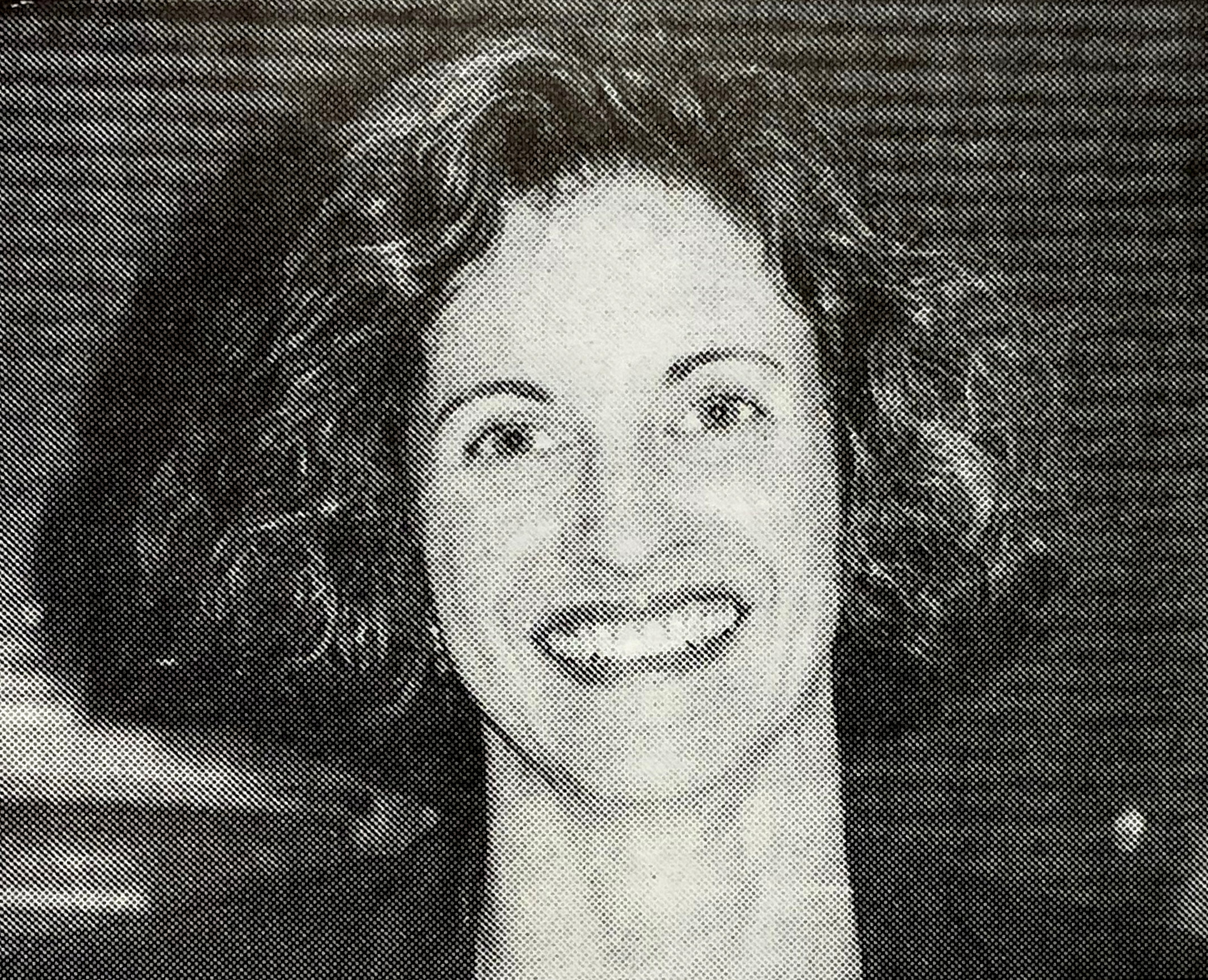 ,
, 
When Barb Berghorst was hired to run Luverne’s city finances in 1991, she was asked to plan long-range purchases and help with budget forecasting.
“We wanted everyone to anticipate what they’ll need over the next five years, and I put that all on a big spread sheet,” she said.
“It all had to fit in and be financially feasible. … I listened. I planned. I calculated. And I worked with everybody.”
As Berghorst retires 30 years later, she said she’s proud to have accomplished those goals with city leaders who supported the mission.
“The most important thing finance has done in the city operation over 30 years is long-range planning and being prepared,” she said.
Teamwork
She said it took solid relationships among city departments and good city leadership, which she said Administrator John Call has provided over his past 17 years.
“All the department heads meet every week, and we talk about projects. Every project that we work on has input from everybody,” Berghorst said.
“For example, when we work on a street project, you have to know about all the utilities, water, sewer and electric. You have to know if they need to be upgraded while you’re working on a street. … And everything touches the money.”
She said that’s why frequent communication is so important.
“I believe passionately that we’re all here to work together,” Berghorst said.
“Everybody makes a difference. and if we all are focused on the future and the goals, we will figure it out.”
Money saved, bond ratings improved, awards earned
Along the way, this approach saved taxpayers money.
“You can’t have your tax levy go up and down and up and down,” Berghorst said. “The goal is to keep it as flat and stable as you can.”
The planning formula turned out to be good for Luverne’s bond rating, which rose six pegs from a BBB to AA minus during her tenure.
“That’s a big deal for interest rates and it’s a big deal to the rating agencies because they know you’re financially sound,” she said.
This didn’t go unnoticed by her peers in state government, which awarded the city of Luverne with Certificate of Achievement for Excellence in Financial Reporting for 27 years straight. (Berghorst didn’t apply during her first three years.)
She said the award was a reflection of the city’s goals.
“That’s what I was asked to do when I was hired. To do long-range planning and to anticipate things and figure out a way to pay for things,” she said.
“Getting the certificate was always a goal, because it demonstrates financial prudence.”
City Administrator John Call said the award was also a reflection of Berghorst’s personal excellence.
“Barb is really smart about spread sheets, depreciation schedules and municipal finance in general, but she also has a great personality and an ability to work with people,” Call said.
“You rarely find someone who is so smart but has people skills also. I have always thought Barb could run a Fortune 500 company; she has all of the required skills.”
From ledger paper to software programs
Berghorst started in Luverne when City Hall was still located in the former bank building on the corner of Main Street and Cedar Avenue.
Steve Perkins was city administrator and Gordon Gits was mayor.
She and her husband, Sam, were living in Pipestone where she had been working in city finance since 1981.
“Everything was paper and pencil when I started there,” Berghorst recalled.
“There were no computers. Just these big ledger books with green accounting paper, and a section for every fund. You had to record everything and use those totals that you manually did with your paper and pencil.”
When it was time to computerize the process, Berghorst found her calling.
“The computer part of it I loved,” she said. “I was able to purchase the first computer and the first software package, write the chart of accounts and input the chart of accounts, make it match what the state auditor wanted, and understand how everything worked together.”
In Luverne she enjoyed moving City Hall from the downtown Cragoe building to the former hospital and Minnesota West building, because she could be part of building the in-office computer network.
“I loved that,” she said. “I love projects and figuring things out.”
Since finance relies on technology, Berghorst said people in her position become IT specialists by default.
“We have to make sure we have hardware and software to protect our network environment from ransomware, and we frequently update passwords and take other security measures.”
She said she also enjoyed learning how city government worked.
“It was so interesting to know what was going on and how they made decisions,” Berghorst said.
“I had questions about ‘What’s the difference between a resolution and an ordinance?’ I didn’t know, but you learn as you go, and I worked with good people.”
How to buy a fire truck
While it seems straightforward, Berghorst said many city governments, especially smaller towns, don’t strategically plan their finances.
“Typically, smaller towns operate like a checkbook. They look at this year, they budget for next year, and they want to know if there’s any money in the bank when they’re done,” she said.
“But in a city like ours with millions of dollars in utility operations, you need to have a better sense of financial planning. So, funding depreciation, doing rate studies every three years, and making sure you have adequate reserves are all essential to get the mountains and valleys smoothed out.”
Berghorst remembers her first year in Luverne.
“Jim Johannsen, the fire chief, was very concerned that when he needed a new fire truck, it was going to be a big problem,” she recalled.
“I said, ‘Well, no. If you need a new fire truck, when do you need it?’ He said he’d need it in about four or five years, and I said, ‘When you tell me that you’ll need a $100,000 fire truck, it’s easy to figure $20,000 per year for five years and then we’ll have the money for you to buy a new fire truck.’ If he’d waited and said he’d need it next year, and if everybody else does that, too, you can’t plan.”
She said she’s enjoyed the challenge of bringing together the departments to figure out how to get purchases paid for.
“We’re not going to skimp on training, and we’re not going to skimp on safety.” Berghorst said. “We want you to have the tools you need to do your job well, whether that’s computer resources or heavy equipment.”
Recipe for success
And when everyone communicates, she said, everyone wins.
“We have a really good recipe for success,” Berghorst said. “My co-workers and the young people who have moved in here are well-educated and extremely bright.”
For example, her replacement, Robyn Wessels, worked several years to become the next city finance director.
“She needed a degree in a finance-related field, which she got while her children were in school,” Berghorst said.
“She worked really hard to earn that. Plus, she already has a big-picture view of this organization. She understands utilities, and she’s taken governmental classes you don’t get in college.”
Berghorst said she was privileged to work with “top-notch” people in Luverne.
“The staff here are really good in their fields, and they work as a team,” she said.
“We are very fortunate to have had very progressive and conscientious councils. We have an excellent administrator, and we have really good employees all throughout the ranks. When you feel that way, it’s fun to come to work every day.”
Berghorst, 67, said that made her retirement decision easier.
“I love my job, but there comes a time when things are in place and there’s a great staff, so you can move forward,” she said.
She and Sam have four grown children, Randy in Luverne, Steven in Sioux Falls, Amanda (Van Maanen) in Hills, and Stacy in Paulina, Iowa. They have 10 grandchildren, and Berghorst said she’ll spend most of her retirement time with them.
“Family’s pretty important to us, and we’re pretty close,” she said.
“I’m going to try to exercise more. I’d like to take more stained-glass classes. I’d like to read more. I’d like to do more interesting cooking — more than just making supper. I love interesting food and trying different things.”


